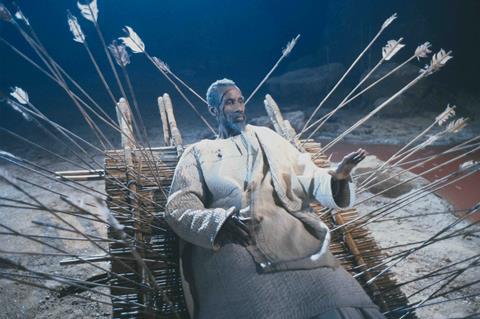
It is a good time for heritage cinema and for audiences thanks to technical advances in high resolution scanning, colour grading and restoration, agreed European and Middle Eastern execs at a roundtable hosted by Screen in association with the Saudi Film Commission, at this year’s Venice Film Festival.
“The experience and the emotion you get when you screen a movie that was restored and digitised from the original negatives is very new,” said Caroline Caruelle, managing director of France’s Cité de Mémoire. “It’s not like when you see a copy or a print copy being digitised.”
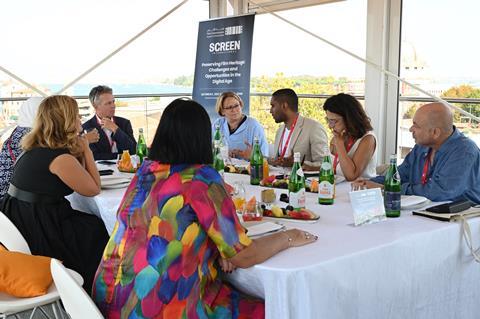
The digitisation of classic films has also provided access as never before, with wide distribution thanks to digital platforms. New technologies such as AI are also helping to enhance accessibility, discovery and preservation, said the speakers. They were: Marianne Khoury, artistic director of Egypt’s El Gouna Film Festival; Abdulmalik Alasiri, senior conservation and restoration specialist at the Saudi Film Commission through the National Film Archive; Simon Brook, director and producer at Paris-based Brook Productions; Viktoria Sovak, FilmLab director at Hungary’s National Film Institute; Tamás Bódizs, senior project manager at Hungary’s National Film Institute; and Simone Baumann, managing director of German Films.
But there remain many financial, legal, technical, curatorial and copyright challenges to digitising film heritage.
Alasiri said Saudi Arabia had been working for many years on digitising its film heritage from multiple collections such as Aramco and the Saudi Broadcasting Authority – spanning 35mm through to Betacam tapes and DVDs. The Saudi Film Registry now contains data on over 1,000 films, including feature films and documentaries.
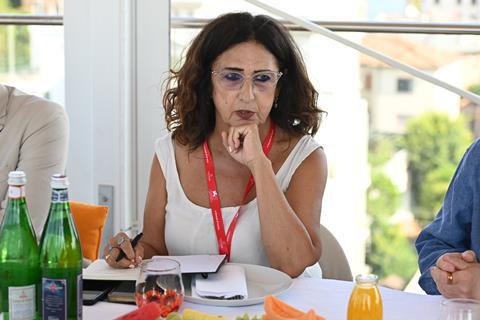
Alasiri noted the Saudi Film Commission has recently launched a Film Deposit initiative through the National Film Archive that is dedicated to collecting and archiving Saudi films to preserve them for future generations. It wants amateur and professional filmmakers to deposit their films in the National Film Archive.
The Film Deposit move was applauded by the panel as an “amazing” initiative for preserving film heritage. Khoury added such initiatives had to be driven at a national level ”because no one else can afford the costs”.
The importance of national efforts to preserve film heritage was stressed by other speakers. Baumann noted, for example, that Germany has a Film Heritage programme which invests €10m into the restoration of cinema films which comes from the National Film Fund, co-financed with the Ministry of Culture. Each year the German Cinematheque puts out a call for rights holders to apply for the restoration of their films.
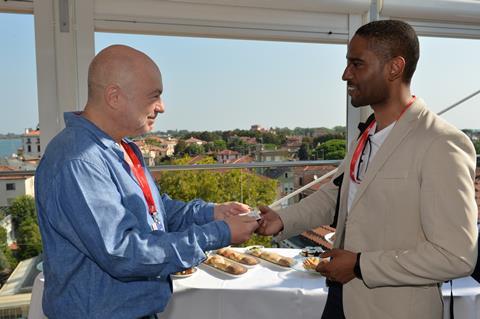
Saudi Arabia is emerging as key regional player in moves to preserve the heritage of Middle Eastern cinema, and plans to collaborate on initiatives with the likes of the Egyptian, Tunisian and Algerian film industries.
Caruelle’s company Cite de Memoire has been working in Saudi Arabia for nearly three years and is collaborating with a private corporation to preserve its archive. “We are not moving the asset out of Saudi to us [in France], we are building ingest equipment facilities in the territory and we are hiring people locally. We train and we transfer knowledge so that the digitisation can be handled locally.”
Khoury said Egypt’s film industry had produced between 4-6,000 titles but does not have a national film archive. She reckons around 10% of all the films made in Egypt have been digitised so far. “All the efforts so far [to archive films] are private.”
Khoury is also a managing partner in prominent Cairo-based Misr International Films, which was founded by legendary Egyptian director Youssef Chahine, and has worked on preserving his film archive. The company has restored around 30 of Chahine’s films, working with different international institutions such as the CNC in France and the Cineteca di Bologna, as well in Egypt where it has restored seven films.
For example, her company worked with the CNC thanks to a CNC fund that helped restore eight of his films that were co-produced with France. In total, Khoury said her company has digitised around 100 films.
Restoration costs
Khoury identified a number of challenges, starting with money, that is holding back the restoration of heritage cinema. She said restoration prices varied from country to country, with costs of up to €100,000 for a restoration in France to $20,000 in India and $2,000 in Egypt.
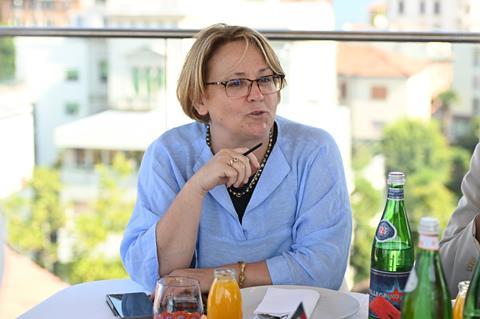
Caruelle said CNC statistics reveal the average price for a restoration and digitisation in France is now €72,000. This covers aspects such as the inspection and repair of the original material, though to scanning, grading and the delivery of a new 35mm print.
Screen’s Middle East correspondent Mona Sheded pointed out it is often difficult to track down classic films in Egypt as many were produced by independent producers who may have only made one or two films.
Brook, who was in Venice to present a restored 8K version of his father Peter Brook’s 1989 film version of the Hindu epic The Mahabharata in the Venice Classics section, cited some of the challenges in getting to this point.
“For some reason the film was never being shown, and we could never figure out why. The producer was always saying no. About three years ago, the producer died and I decided to try and get the rights back. I discovered he didn’t in fact have the rights. He owned the film, but it was mortgaged to a bank - and so there was no reason for him to ever show it, because any money went straight back to the back. And for nearly 35 years it wasn’t seen.”
Brook also spoke of the challenges of monetising preservation efforts, particularly at a time of “rampant piracy’ where a restored version of film might be copied and illegally loaded up to a platform like YouTube.
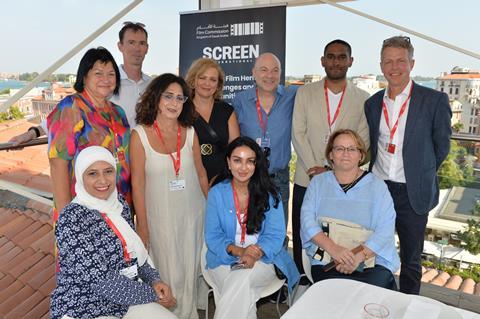
Further challenges discussed by the panel included the cost of data storage for digitised assets. A digitisation of an old movie averages seven to eight terabytes. A minimum three copies need to be kept in either two or three different technologies.
“That costs money to handle, to store and to migrate every five to six years,” said Caruelle.
Viktoria Sovak Lelievre of NFI Filmlab said analogue storage costs are very small by comparison. “You basically need a shelf and some well-ventilated rooms with, if possible, a low temperature. But that’s it. You can leave it for 500 years and it’s going to be fine.
The NFI Filmlab is one of the few laboratories in the world that continues to offer traditional film processing. Pablo Larrain’s Maria, Brady Corbet’s The Brutalist and Yorgos Lanthimos’s Poor Things are among the high-profile international projects to make use of its facilities.
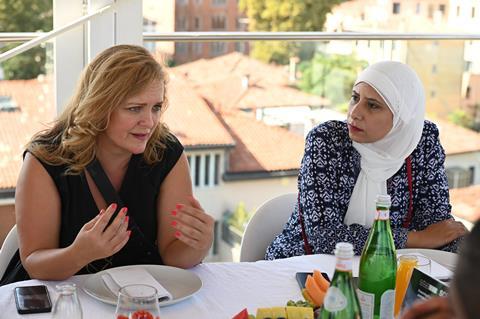
Further challenges centred on access to archives, film education and awareness of film heritage by younger generations.
Artificial intelligence
On the positive side, the panel spoke of the opportunities provided by new technologies such as AI.
‘We use a lot of artificial intelligence in our work, for restoration and the grading,” said Caruelle. “What is very interesting is the progress being made by artificial intelligence in the search mode. We should look closely how artificial intelligence can improve the search and the finding by the public – not just with word questions, but questions about images or videos. It’s a different way to search for content and find content.”
She also said artificial intelligence “needs archive”. “If we want artificial intelligence to be able to produce content it needs to be fed with the digitalisation of classics of audiovisual archives.”
















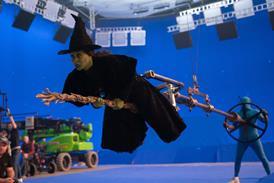
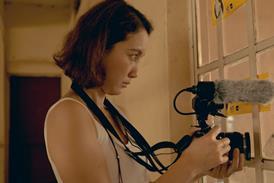







No comments yet